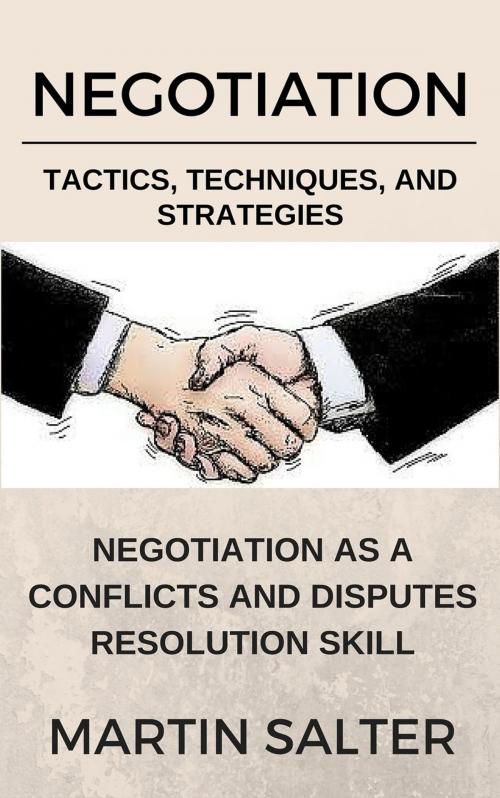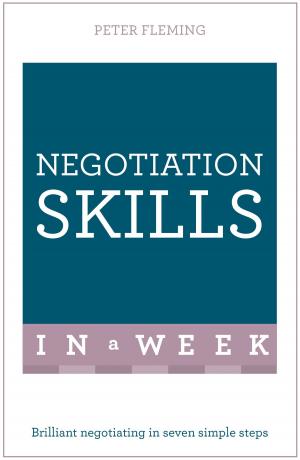Negotiation Tactics, Techniques, And Strategies. Negotiation As A Conflicts And Disputes Resolution skill
Nonfiction, Reference & Language, Law, Arbitration, Negotiation, & Mediation, Business & Finance, Management & Leadership, Negotiating| Author: | Martin Salter | ISBN: | 9781524268794 |
| Publisher: | Martin Salter | Publication: | January 2, 2016 |
| Imprint: | Language: | English |
| Author: | Martin Salter |
| ISBN: | 9781524268794 |
| Publisher: | Martin Salter |
| Publication: | January 2, 2016 |
| Imprint: | |
| Language: | English |
When people have differences between them, they are best resolved through negotiation, which can help to settle the differences. This allows agreements to be reached through compromise, and this can be very helpful in avoiding disputes, and breakdown of relationships.
This is applicable to all spheres of life, whether social, commercial or while conducting a business. Disagreements arise when there are differing needs, aims, beliefs and wants and this can lead to conflicts, which are best resolved through negotiation. This can reduce resentments, arguments and dissatisfaction.
Have you ever realized that even the simple act of offering a cup of tea or coffee to a visitor who has dropped into visit you at home, involves some form of negotiation. The offer has to be made, which can be accepted or refused. If the offer is initially refused, you start negotiating the acceptance of the offer by trying to persuade your visitor.
You may do so by saying it is the right time or that you need it and want company or any other reason, which can persuade the visitor to say yes. The visitor may agree to take a small quantity, which again is an aspect of negotiation. If you are offering tea, you may offer a number of various teas that you have, or persuade your visitor to accept what you have. The visitor may then put forward conditions like liking the tea or coffee strong, or require it to be black, hot, or with milk. Some may even negotiate to have a plate of cookies along with the tea or coffee, or you may make the offer on your own...
Negotiation is required when there is any form of disagreement between the interacting parties. Its main premise is that any outcome must be fair and of mutual benefit to both sides...
When people have differences between them, they are best resolved through negotiation, which can help to settle the differences. This allows agreements to be reached through compromise, and this can be very helpful in avoiding disputes, and breakdown of relationships.
This is applicable to all spheres of life, whether social, commercial or while conducting a business. Disagreements arise when there are differing needs, aims, beliefs and wants and this can lead to conflicts, which are best resolved through negotiation. This can reduce resentments, arguments and dissatisfaction.
Have you ever realized that even the simple act of offering a cup of tea or coffee to a visitor who has dropped into visit you at home, involves some form of negotiation. The offer has to be made, which can be accepted or refused. If the offer is initially refused, you start negotiating the acceptance of the offer by trying to persuade your visitor.
You may do so by saying it is the right time or that you need it and want company or any other reason, which can persuade the visitor to say yes. The visitor may agree to take a small quantity, which again is an aspect of negotiation. If you are offering tea, you may offer a number of various teas that you have, or persuade your visitor to accept what you have. The visitor may then put forward conditions like liking the tea or coffee strong, or require it to be black, hot, or with milk. Some may even negotiate to have a plate of cookies along with the tea or coffee, or you may make the offer on your own...
Negotiation is required when there is any form of disagreement between the interacting parties. Its main premise is that any outcome must be fair and of mutual benefit to both sides...















